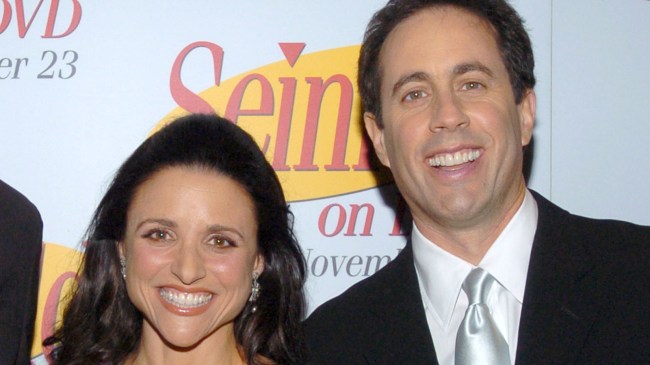Getty Image
The Modern Comedy Discourse is dominated by increasingly tired discussions about political correctness and cancel culture, and Julia Louis-Dreyfus has now chimed in while throwing some shade at Jerry Seinfeld in the process.
Comedy is an art largely built on a foundation of pushing boundaries and subverting the status quo, and notable names like Lenny Bruce, George Carlin, and Bill Hicks couldn’t have cemented their status as the legends they were if they were afraid of offending people.
With that said, the notion of what people consider funny is constantly evolving, and the mark of a good comedian is the ability to literally and figuratively read the room while adjusting to the changing tides.
At this point, I think virtually everyone is familiar with the neverending debate concerning the impact political correctness has had on comedy along with the many notable names who will tell you they’re no longer able to “tell it like it is” thanks to overly sensitive audiences responsible who constantly looking for an excuse to be offended and claim the next victim of so-called “cancel culture.”
In May, Jerry Seinfeld decided to get in on the action during an interview with the New Yorker where he bemoaned the “extreme left and P.C. crap” he asserts has pushed traditional sitcoms to the brink of extinction.
It’s Always Sunny in Philadelphia star Rob McElhenney did a pretty good job undermining that argument with a single word and a screencap, and it was a bit strange Seinfeld felt the urge to take that particular stance in the first place when you consider he’s not exactly known for pushing the envelope with his notably inoffensive brand of stand-up comedy.
Now, another Seinfeld star has entered the chat in the form of Julia Louis-Dreyfus, who got the chance to address the issue during a recent interview with The New York Times. Her former co-star’s comments were used as a springboard to get her thoughts on political correctness, and she had this to say while discussing the topic:
“I think to have an antenna about sensitivities is not a bad thing. It doesn’t mean that all comedy goes out the window as a result.
When I hear people starting to complain about political correctness — and I understand why people might push back on it — but to me that’s a red flag, because it sometimes means something else. I believe being aware of certain sensitivities is not a bad thing.”
She supplemented her initial answer during a follow-up interview with the author of the article, adding:
“My feeling about all of it is that political correctness, insofar as it equates to tolerance, is obviously fantastic. And of course I reserve the right to boo anyone who says anything that offends me, while also respecting their right to free speech, right?”
Well said.

